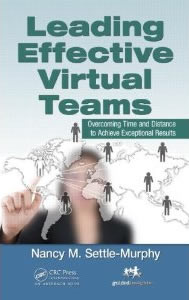This was my first cross-cultural training workshop for this process control firm that had recently been acquired by two new parent companies, one German and one French.
The language classes offered by the company were helpful to a point, but cultural differences were causing insurmountable problems, leading to mutual distrust, project delays, and rapid attrition.
The company invited 20 people to attend my pilot workshop at the Massachusetts headquarters, with roughly half working in Massachusetts, and the others split between German and French employees.
The tension in the room was palpable. Rather than starting with a presentation, I opened the workshop with a card game called Barnga to help break the ice, inject some levity and generate a much-needed discussion about the participants’ real-life challenges of working across time, distance and cultures.
Each table of four people had a deck of cards and a set of instructions. The person who won the most hands by the end of the game would win a prize. Once the bell signaled the start of the game, no one could speak or write until the game was over. After each round, the person with the fewest wins moved to one table, and the one with the most wins moved to another.
While the first round went smoothly, by the start of round two, people began pounding the table, angrily shaking their heads, and grabbing cards out of peoples’ hands. The melodrama went into overdrive in the third round.
As soon as I rang the bell to call time, I heard complaints like: They weren’t playing by the right rules! He was cheating! They must not know how to play cards! People rarely guessed the real source of the chaos: Each table had a different set of rules. Instead, people seemed to be assuming the worst about each other, even though much of it was in jest.
The debrief led to a candid, intense and spirited conversation about the impact of cultural and language differences when communications are constrained, whether due to time zone differences, communications channels, cultural differences, language barriers or organizational styles.
This opened up a discussion about how cultural differences influenced communications preferences, styles and choices. Participants ended up agreeing which communication channels they would use for what, how often, and the level of detail needed, including timing and duration of meetings; how to ask for help; making decisions; and giving and getting feedback.Had we not started the workshop with a simulation, we could never have gotten this far.
Joining me in writing this edition is Alexandra Suchman, CEO and co-founder of BarometerXP. Games can be a great way for leaders to simulate important elements of culture for a team or an entire organization. Why?
- Reason #1: At their core, games are all about problem-solving. Whether competitive or collaborative, most games contain elements of communication, strategy, and behavior that closely mirror the real-life workplace.
- Reason #2: Playing games lets a team practice how members can work together in a low-stakes environment that allows for trial and error and experimentation, preparing them to work together effectively when the stakes are higher.
- Reason #3: Games offer a way to explore different work styles and perspectives in a way that promotes curiosity and empathy, rather than conflict. However, real conflicts can emerge even during simulations. I designed a “build a helicopter” activity for a global project team kick-off meeting as a playful way for members to learn more about each other’s communication styles. One team member became so verbally abusive that the senior leader removed him as the project lead, commenting: “If a play activity gets him so riled up, I’d hate to see how he treats his team members when they’re under pressure.”
- Reason #4: Games can be a great way for virtual and hybrid team members to connect, especially where there may be few opportunities to interact outside of scheduled meetings or asynchronous chats. Some games can be done quickly and easily with no need for a real debrief, and others can be more complex and take more time, requiring a debrief that relates to the work of the team.
- Reason #5: Games are most effective when there’s enough time for self-reflection and team discussion about a thoughtfully designed activity. What did we learn about ourselves? About each other? About how we work as a team? How can we apply this knowledge as we collaborate in the future?
- Reason #6: Games can be a great way to help people feel more comfortable with each other, building trust and cultivating psychological safety. The better colleagues know each other, the more likely they are to attribute more generous assumptions to their team members’ motivations, and far less likely that small misunderstandings will blow up into larger conflicts.
Too often, games are dismissed as being unserious and frivolous. We believe that games are in fact incredibly valuable, not only for building stronger team culture and morale, but as a tool for deep experiential learning that catalyzes critical conversations and inspires meaningful change.
Here are some of our favorite games (Most can be played in person or virtually with some modifications):
- Barnga, a card game simulation designed to help global teams empathize and communicate more effectively across cultural differences. Check out this YouTube video. (multicultural team – understanding how differences present roadblocks) or order the game book here
- Marshmallow Challenge – May be used as an icebreaker, energizer or a team activity to aid in discussion of team dynamics. Here’s a guide.
- Juxtaportrait, a game I created for new or existing teams to help them identify how they see themselves working as a team today, juxtaposed to how they’d like to see themselves work in the future. – Download a PDF of instructions
- One Word at a Time – Adapted from the world of improv, where any number of people can play, adding just one word to a story at a time. Download a PDF of this and other improv game instructions from Izzy Gezzell.
- Getting to know you. Ask people to walk around the room in any direction. When you say stop, people pick a person they don’t know who’s closest to them. They take turns answering the same question. (Examples: If you had $1M to give to one place other than yourself, what/who would it be? Describe your perfect vacation.) Repeat once or twice as time permits, changing the question each time. This activity can also be done in randomly-assigned breakout groups.
- Scavenger hunts (in person or online). Depending how much time you have and your venue, you can ask teams to find the hidden items within a specific space, across a city or online.
- Fishbowl: Use this free app to play in person or virtually: https://fishbowl-game.com/
- Codenames: Purchase the board game or play the free online version at https://codenames.game/.
- PowerPoint Karaoke: https://www.powerpointkaraoke.com/
- Scattergories: Purchase the board game or check out this article on how to play virtually at https://www.bustle.com/life/how-to-play-scattergories-on-zoom-with-your-friends-22883490.
- Poetry for Neanderthals: Download a free PDF of how to play this via video chat at https://ek.explodingkittens.com/how-to-play/poetry-for-neanderthals-video-chat-rules.
Links
Links to past Communiques:
- Seriously, Here’s How Improv Techniques Can Liven Up Any Virtual Meeting – Guided Insights
- Energize Your Next Virtual Meeting! – Guided Insights
My articles appearing in external publications:
- How to Improve Your Virtual Strategic Planning Process (reworked.co)
- How to Create and Use a Team Communications Map (reworked.co)
- The Importance of Play at Work | Time
- Games Can Make You a Better Strategist (hbr.org)
- Use Games To Practice Strategic Thinking (trainingmag.com)
Recent LinkedIn Live session with Penny Pullan:




